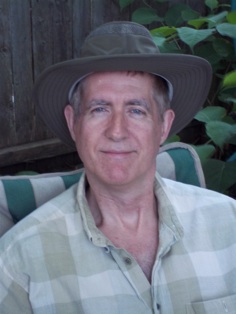| My mother bought me a nifty hat Leaving the day after tomorrow. Boston to NY and then a nine-hour direct flight to Istanbul. And then another leg to Konya later on the night of July 25. I’m trying to prepare myself for time change and jet-lag. My sleep schedule has been messed up ever since I came back from Türkiye a couple of years ago - maybe this will straighten it out? |
Konya is a fairly large city about an hour away from Çatalhöyük. The word is pronounced something like Chatalheuyuek; it means forked hill. Or a road forking around a hill - something like that. I’ll stay at the Dedeman hotel in Konya. I’m told it’s air-conditioned and has wi-fi and maybe even a pool. I will drive back and forth each day. My mother thinks I should hire a driver. She’s probably right but I’m hesitant.
The home of the mystic poet Rumi, Konya is one of the most religiously conservative cities in Türkiye. I passed through one afternoon back in 2007, when I was researching my play, CRY OF THE REED, that takes in Konya. I visited the Rumi museum and the mosque. Turks don’t think of Rumi as the romantic mystic most westerners think him to be. For them, he’s a profoundly religious figure.
What I didn’t realize when I made these plans was that I was going in the middle of Ramadan, the holy month of Islam. Now this is going to be interesting. During ramadan, observant muslims fast between sun-rise and sun-down. Here is what wikipedia has to say:
Ramadan is a time of spiritual reflection and worship. Muslims are expected to put more effort into following the teachings of Islam and to avoid obscene and irreligious sights and sounds. Sexual intercourse among spouses is allowed after one has ended the daily fast. During fasting, intercourse is prohibited as well as eating and drinking, and resistance of all temptations is encouraged. Purity of both thoughts and actions is important. The act of fasting is said to redirect the heart away from worldly activities, its purpose being to cleanse the soul and free it from harmful impurities. Ramadan also teaches Muslims to practice self-discipline, self-control,[17] sacrifice, and empathy for those who are less fortunate; thus encouraging actions of generosity and charity. It becomes compulsory for Muslims to start fasting when they reach puberty,
This means I’ll have to store food away so I don’t go hungry. It will be interesting to see how the western archaeologists handle ramadan. How will the Turkish workers at the site handle it in the sweltering heat of August?
The home of the mystic poet Rumi, Konya is one of the most religiously conservative cities in Türkiye. I passed through one afternoon back in 2007, when I was researching my play, CRY OF THE REED, that takes in Konya. I visited the Rumi museum and the mosque. Turks don’t think of Rumi as the romantic mystic most westerners think him to be. For them, he’s a profoundly religious figure.
What I didn’t realize when I made these plans was that I was going in the middle of Ramadan, the holy month of Islam. Now this is going to be interesting. During ramadan, observant muslims fast between sun-rise and sun-down. Here is what wikipedia has to say:
Ramadan is a time of spiritual reflection and worship. Muslims are expected to put more effort into following the teachings of Islam and to avoid obscene and irreligious sights and sounds. Sexual intercourse among spouses is allowed after one has ended the daily fast. During fasting, intercourse is prohibited as well as eating and drinking, and resistance of all temptations is encouraged. Purity of both thoughts and actions is important. The act of fasting is said to redirect the heart away from worldly activities, its purpose being to cleanse the soul and free it from harmful impurities. Ramadan also teaches Muslims to practice self-discipline, self-control,[17] sacrifice, and empathy for those who are less fortunate; thus encouraging actions of generosity and charity. It becomes compulsory for Muslims to start fasting when they reach puberty,
This means I’ll have to store food away so I don’t go hungry. It will be interesting to see how the western archaeologists handle ramadan. How will the Turkish workers at the site handle it in the sweltering heat of August?

 RSS Feed
RSS Feed